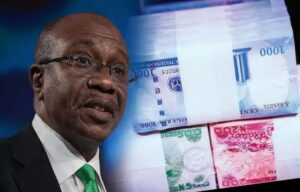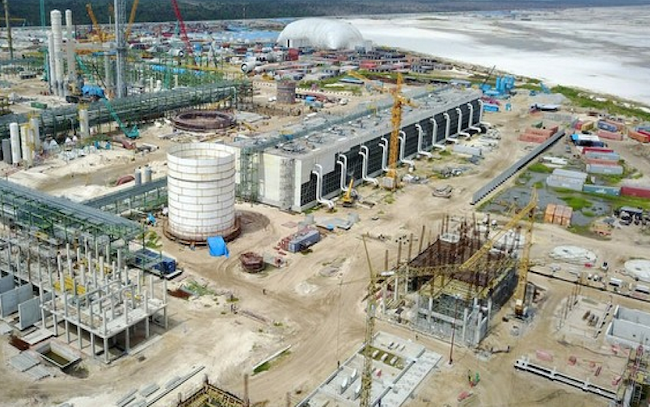The naira has lost about 76.17 percent of its value since June 2014 when the suspended Governor of the Central Bank of Nigeria (CBN), Godwin Emefiele, took office.

It was observed that the naira official rate compared to the US dollar had fallen from N164 to N462.4 (or 64.53 percent) since June 2014.
Within the same timeframe, the naira has weakened from $1/N183 to $1/N768 in the parallel market, which also indicates the currency has suffered a 76.17 percent depreciation since 2014 under Emefiele.
According to The PUNCH, the naira lost significant value under Emefiele than most CBN governors since 1999.
A breakdown of how the currency moved under each CBN governor showed that under Joseph Sanusi, the naira-to-dollar exchange rate moved from N99 to N132. Joseph Sanusi spent five years at the helm of the apex bank between 1999 and 2004.
Under Chukwuma Soludo (2004-2009), the dollar exchange rate moved from N133 to N147, while under Lamido Sanusi (June 2009-February 2014), the dollar exchange rate moved from N148 to N157.
Under Emefiele, the value of the naira to the dollar weakened significantly despite efforts to ensure stability by the CBN.
In a bid to manage the value of the naira, the CBN introduced a number of policies, such as stopping forex supply to importers of 41 items that could be produced locally, offering N5 for every $1 remitted to Nigeria through Internal Money Transfer Organisations, and banning the supply of forex to Bureaux De Change, among others.
Specifically, in March 2021, the bank introduced the ‘Naira 4 Dollar Scheme’, intended to boost the inflow of Diaspora remittances into the country. This programme works by paying Diaspora remittance recipients an incentive of N5 for every $1 received through a licensed IMT operator.
In May 2021, the CBN adopted the NAFEX rate as the benchmark rate. This initiative simply meant that rather than having multiple official rates (e.g. CBN rate at N379/$ vs. IEFX rate of N410/$ at the time), the bank simply decided to reduce the number of official rates.
In July 2021, the CBN announced the discontinuation of foreign exchange sales to BDC operators. Emefiele alleged that some BDCs’ actions contravened the agreement with the apex bank by seeking to maximize profits, which he deemed excessive.
In February 2022, the CBN extended the naira for dollar scheme from the IMTOs to the IEFX window.
Specifically, the CBN released instructions that outline that it would facilitate the payment of N65 for every US dollar repatriated and sold at the Investors’ and Exporters’ Window.
However, these policies have not been able to maintain naira stability, and the World Bank disagreed with the CBN on how it tried to achieve price stabilisation of the naira,
The world bank stated that the currency should be allowed to respond to real pressures and not be bottled up by the apex bank, and the country’s exchange rate strategy was discouraging investors and increasing inflation.
The World Bank in its Africa’s Pulse report for April 2023 noted that the naira lost 10.2 percent of its value in 2022. This came as rising food and fuel prices spiked high inflation in the country in 2022.


















